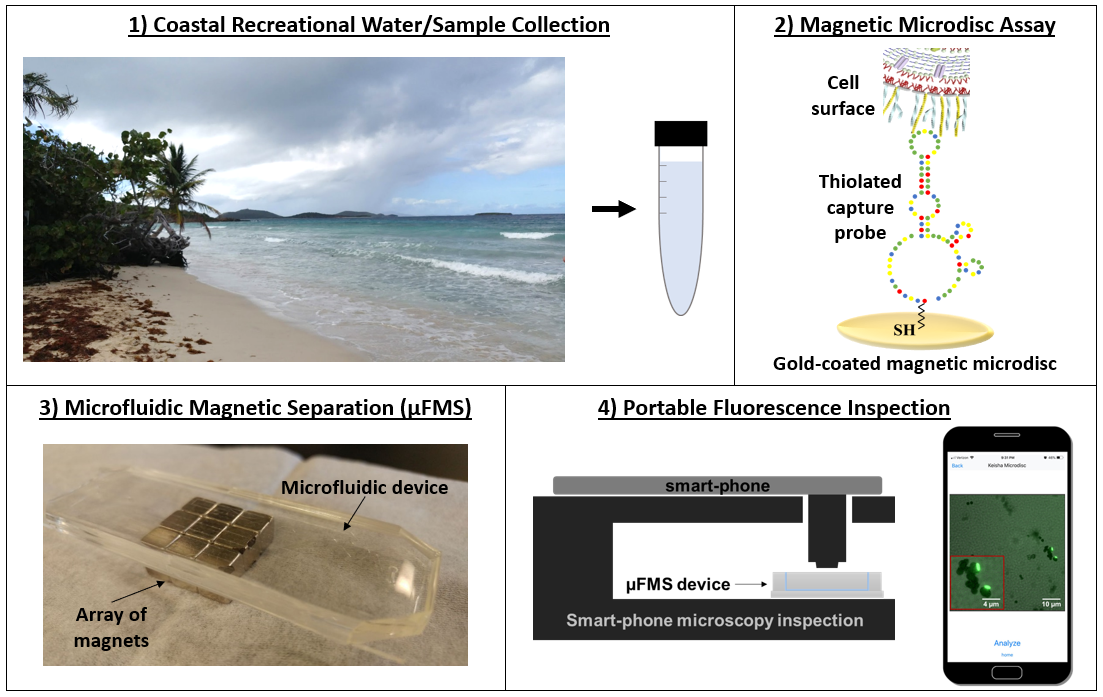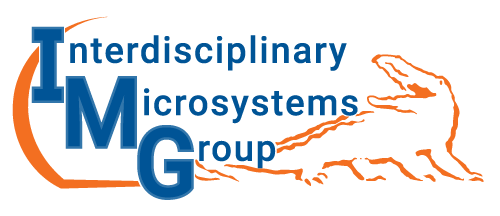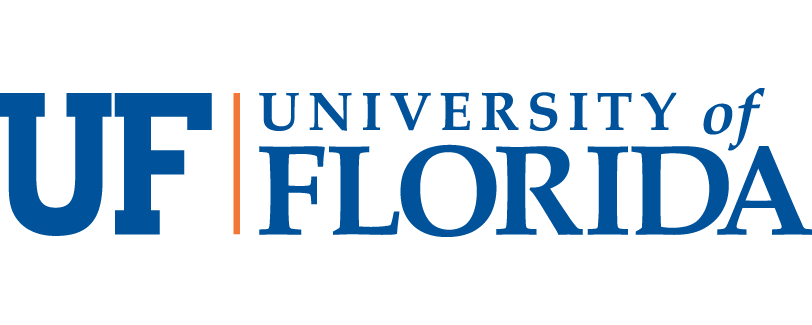
Detection of fecal indicating bacteria plays an important role in water quality monitoring to ensure safe human water contact and/or drinking. Specifically, epidemiological studies by the U.S. Environmental Protection Agency (EPA) have shown strong correlations between illnesses and bacteria concentrations of Enterococci and E. coli in fresh and marine waters. While there has been much work in bacteria detection in water samples, current limitations include long response times (typically 24 hours for incubation of bacteria) and a need for complex lab tools and/or equipment.
We have recently developed a method for rapid (<1 hour) isolation and detection of E. coli with no enrichment steps. We have demonstrated a limit of detection down to 100 CFU/100 mL, which is below the EPA threshold of 125 CFU/100 mL. In this effort, we propose to continue development of this bacterial isolation technology for on-site detection of contaminating bacteria in Puerto Rico’s coastal recreational waters. Specifically, we aim to improve the limit of detection for E. coli, and to demonstrate a rapid (< 1 hour) detection of Enterococci from up to 100 mL samples at concentrations as low as 35 CFU/100 mL with a simple, field-deployable apparatus.
The project proposed herein will make use of bio-functionalized (with aptamers, lectins, antibodies, or others) magnetic microdiscs to isolate fecal contaminating bacteria to be examined via fluorescent imaging using lab epi-fluorescent/confocal microscopes. Also, the use and development of a portable fluorescent imaging apparatus for presence and viability detection of bacteria. Here, a portable platform will be used with a smart-phone device and granulometry image processing algorithms for on-site quantification of bacterial targets. Finally, actuation/stirring of the magnetic microdiscs will be explored to enhance bacteria interaction/binding, hence reducing detection time and limits of detection.

